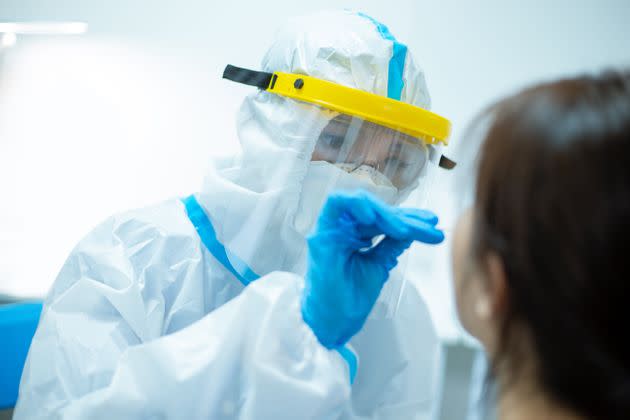New 90-Minute Coronavirus Tests For Care Homes And Hospitals
Get the latest on coronavirus. Sign up to the Daily Brief for news, explainers, how-tos, opinion and more.
New tests which can detect coronavirus and flu will be made available in hospitals, care homes and laboratories from next week.
The swab and DNA tests promise to deliver results in 90 minutes and will help clinicians and NHS Test and Trace to differentiate between Covid-19 and other seasonal illnesses, the Department of Health said.
About half a million of the new rapid swab tests will be available from next week, with millions more to be rolled out later in the year.
Thousands of DNA test machines, which are already being used in eight London hospitals and can analyse nose swabs, will be rolled out across NHS hospitals from September.

Health secretary Matt Hancock described the tests as “life-saving” and said they would be “hugely beneficial” over the winter.
“Millions of new rapid coronavirus tests will provide on-the-spot results in under 90 minutes, helping us to break chains of transmission quickly,” he said.
“The fact these tests can detect flu as well as Covid-19 will be hugely beneficial as we head into winter, so patients can follow the right advice to protect themselves and others.”
There are currently two main tests used to detect the virus: nasal/throat swabs and finger-prick blood tests.
While both tests have been useful, the swab test can be invasive and uncomfortable, and there are concerns over the accuracy of the antibody tests.
They also take a significant amount of time to be processed – between 24 and 72 hours.
The announcement comes as the Department of Health denied it had abandoned its promise to regularly test care home residents through the summer.
Care home residents and staff were meant to receive regular testing from July 6, but will now be pushed back to September 7 for older people and those with dementia, the PA news agency reported.
A spokesperson for the department said: “A combination of factors have meant...


